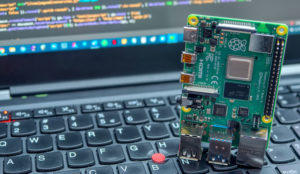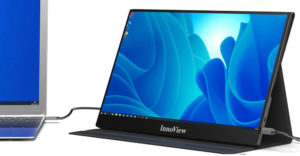As I occasionally do, lately, I was racking my brain for a fun Linux flight of fancy to take us on. Many pixels have been spilled on the subject of “Linux,” or even just desktop Linux, with many more sure to follow. Even so, I strive for a unique perspective.
That’s when I realized that the reason it’s so challenging to think of something novel to say about the Linux desktop is that it’s so smooth, stable, and versatile that it doesn’t make me think about it unless I really try.
Micro-epiphany in hand, I wanted to explore what it is about Linux that makes it “just work” so well that users aren’t even conscious that they’ve opted out of the desktop operating system duopoly.
Such a Smooth Ride, You’ll Think You’re Floating
Most of what most of us do, most of the time, is done in the browser. So since Linux lets you use almost any browser you can think of, your browser experience on Linux is instantly familiar.
Among the browsers that run on Linux like a dream are Chrome, Firefox, Opera, and Vivaldi. Better yet, because system resource use is typically low on Linux compared to Windows and macOS, the browser ends up being one of the few things, if not the only thing, that uses a notable amount of CPU or memory. That leaves that much more room for the browser to utilize the resources it needs.
Rarely does the fan on my Linux box rev up, but when it does, I can almost always trace it to a single browser tab — which, if you didn’t know, you can do with the browser task manager.
If Music and Videos Be the Food of Penguins, Play on
Another major desktop activity is media consumption. Get between a user and their favorite movie, TV show, or music, and they’ll drop your OS in a CPU cycle.
There’s a reason VLC is known for its versatility. It can play practically any media format, audio or video, desktop or mobile. True to form, VLC installation on Linux couldn’t be easier: every desktop distribution I’ve tried has VLC in its repositories. Just open the package manager, search “VLC,” and hit install.
As mentioned above, VLC fears no file format — and “file” in this case can be taken to mean “reading live from the DVD.” It can even cast to Chromecast devices — bet you didn’t know that, did you? If you did, my hat’s off to you!
For those who prefer streaming over cramming your drive with files, Linux remains undaunted. In terms of video streaming, the browser’s got you covered. For music, Spotify has a player client made for Linux. Personally, I’ve witnessed more problems with my Spotify Android app than the Spotify Linux desktop client, and the former is a much bigger focus for their developers.
From the Discord Emerges Harmony
Discord has emerged as one of the most popular communication apps today, an impressive feat considering how many options are out there.
Through the pandemic, I relied heavily on Discord to keep tabletop RPG gaming with friends, so I put it through the gauntlet on my system. During our weekly 4-hour sessions, friends on Windows systems would run into snags while my .deb-packaged “Public Test Build” of Discord didn’t miss a beat.
Old-Fashioned Web Apps Never Looked Better
It will come as no surprise to longtime readers that I view the Linux desktop as the superior desktop. I could sing its praises until my fingers blister. I won’t, though. I’m a professional.
What I will say in that vein on this particular subject — that of Linux providing such a refined experience that one forgets one is running Linux — is that some Linux-centric software makes web apps feel even more polished.
On Linux, web apps aren’t relegated to a normal browser window. I was first exposed to this new horizon on Linux Mint, my current daily driver, via its Webapp Manager program. The program plays nice with other Debian-based distributions, too. If Debian-style Linux isn’t your speed, there are comparable alternatives for other Linux families. Linux wouldn’t be Linux without choice, after all.
Once you configure a web app, it gets placed in your desktop environment’s app menu and behaves like a regular standalone app. All it needs to run is an existing installed browser to piggyback on, which every desktop user already has. Have multiple browsers? Lucky you: you get to pick which browser plays host. You can also choose whether to utilize your browser’s private browsing mode.
Best of all, Webapp Manager lets you stay logged in to your account, so you’re ready to roll on app launch. The managed web app honors this preference even if the browser is configured to clear all authentication tokens and cookies on quitting. This way, you can keep your sensitive accounts secure while staying logged into non-sensitive accounts, e.g., news readers.
Runs Like a Dream but Occasionally Causes Nightmares
Nothing is perfect. Sadly, this applies to Linux distributions, too. Certain scenarios are more likely to yield a less-than-ideal Linux desktop experience.
You could be in for a headache if you try to install Linux on extremely obscure or shiny new hardware. Since becoming a Linux diehard, I have only bought computers with common chipsets. If you try the latest and greatest Mac or a PC with non-standard internals, installation, and normal boots afterward might be rough.
If you’re a big-time gamer, Linux will mean making sacrifices. Custom gaming peripherals, streaming programs, and your favorite triple-A titles may not play nicely with Linux. I hear that Linux has made great strides, the Steam Deck being arguably the most notable example, but all the serious PC gamers I know stand by Windows rigs — as much as we all dream of a day when Linux conquers gaming.
If you’re married to certain proprietary desktop software you’re used to, Linux’s offerings will feel unfamiliar. For my part, I’m perfectly happy to trade Word for LibreOffice, GarageBand for Audacity, and Photoshop for GIMP. Although, if you’re unwilling to learn these eminently suitable alternatives, you will miss their Windows/Mac counterparts on Linux, where they just aren’t available.
None of these programs are ones I use on a daily basis, hence why I didn’t feature them earlier. But if you are a creature of habit in your digital workflow, feel free to pass on Linux. I’m not offended.
Embracing Linux
It speaks to the Linux desktop’s maturity that these hang-ups are exceptions, not the rule. I know more than one person in my social circles who has switched to Linux and hasn’t looked back.
Given how Linux has continued only to climb higher, I’m looking forward to the days ahead of not realizing I’m on Linux most of the time.


























































I participate in forums. Most Linux nightmares are self induced. Linux give you great power over your OS, enough power to destroy it if you are not careful. Our desire to modify and tweak to infinity is the biggest problem.